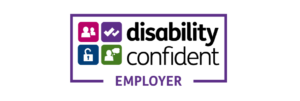Applying for graduate jobs can be daunting, but when you have a disability, this can sometimes add to the stress of applying for graduate jobs. This blog aims to allay some fears and also encourage you with tips, advice and information on where you can find help and support to succeed in the graduate labour market.
Defining a non-visible disability
It’s probably a good idea at this point to define what we mean by a non-visible disability. These are basically disabilities which are not immediately apparent. They are also sometimes referred to as “invisible” or “hidden” disabilities. An interesting fact is that one in every two people has some kind of health condition -this may not necessarily equate to a disability under the Equality Act definition but it does mean that there are a lot of people living with things that are not immediately obvious to the eye.
Some of the non-visible disabilities that many of us have so to name a few:
ADHD, Dyspraxia, Deafness, Anxiety, Dyslexia, Chronic Fatigue/ME, Coeliac Disease, Narcolepsy, Repetitive Strain Injury, Tinnitus..
Its worth knowing at this point that there are therefore huge numbers of people working successfully in the workplace with non-visible disabilities. For example, how many of you know which non-visible disability these well know people from the entertainment and political arena have?
Lady Gaga
The answers:
George Clooney - Pain, insomnia
Lady Gaga - fibromyalgia
Kylie Minogue - Anxiety
Theresa May - Type 1 Diabetes
Donald Trump - Dyslexia
Daniel Radcliffe - Dyspraxia
So many people have a non-visible disability but they have successful careers. So how might they have done this?
Become an expert!
What’s important when applying for a job is that you become an “expert” on your disability. It’s important that you understand how your disability affects you and the adjustments you would need to work well in an organisation. So think about what would make your life easier. This may range from flexible working, working from home occasionally, specialist equipment, line management support – a preference for having clear goals and regular meetings to check progress are some of the things to think about.
The question an employer will always want to ask is “What is your disability and how will it affect your ability to do the job?”
Once you feel comfortable with the above and have thought about your needs, and the support you might ask for to succeed in the job, think then about your strengths.
Know Your Strengths
It’s so important to know what you can offer an employer, so spend some time thinking about your personal attributes and your knowledge and experience. For example, a person with dyslexia, has often learned to be very organised because short term memory can sometimes be an issue.
If you suffer from Chronic Fatigue/ME for example, again you may have worked out how to be extremely organised during your degree to meet deadlines and cope with tiredness. You may also have developed strong resilience and empathy skills as a result of your condition.
Think how you have achieved on your degree course and how this could be transferred to the workplace. Perhaps some of the techniques or tools you have used during your academic study would be easily transferable to the world of work. If you are finding it difficult to articulate your strengths, do come and speak to a Careers Adviser.
Finding Jobs
You may find it useful to target disability friendly employers. Look for particular accreditations such as Disability Confident employer or the Two Ticks. 
EmployAbility www.employ-ability.org.uk is a not-for-profit organisation that provides support and advice for students and graduates with disabilities. Employ-Ability also runs a wide range of internships and graduate recruitment programmes on behalf of many of the most prestigious and progressive blue-chip and public sector organisations.
When or if to tell an employer about your disability
“So how do I get a job and when, if, and how should I tell an employer about my disability?”
When to disclose has probably been the most popular query I have had this year as a Careers Adviser covering students with disabilities.
Disclosure to employers is complicated and a challenge, because you don't always know exactly what you'll be doing in that job, and whether your condition will be relevant. As many disabilities aren’t obvious to people, students may also find it tempting not to let a potential employer know in advance. However, there may be many benefits to disclosing and particularly early in the recruitment process. One recent graduate I met at a Careers Adviser’s training event in London last week said that he really hadn’t wanted anyone to know he had dyspraxia/dyslexia and when applying for the Civil Service Fast Stream, he chose not disclose the first time round and then failed on one of the final tests. The second time round he was advised to disclose, was given extra time and support and he was successful in his application. His biggest regret is not doing this earlier!
Firstly, if you are not sure, you can decide anytime whether to disclose or not. However, the important thing to bear in mind is that you will not come under the protection of the Equality Act 2010 until you do. For more information on this take a look at https://www.equalityhumanrights.com/en/equality-act-2010/what-equality-act
or Diversity Link information.
At the Psychometric Test, Application or Interview stage?
If you do decide to disclose think about when you might. You may decide if you have dyslexia or suffer with anxiety or ADHD, that it would be good to tell an employer of your disability prior to sitting any psychometric tests as you may need to ask for additional time and in some cases you may need to give the employer time to consider alternative tests in order to measure your capability to do the job. A key tip here is think about telling the employer sooner rather than later as preparation work would need to be done to best support you.
You may decide to disclose at the application stage as companies may select you then on meeting the essential criteria required to do the job. You may decide that you would prefer to apply and then if shortlisted disclose then. It may be that you need some reasonable adjustments for the interview in order to compete successfully.
You may decide that actually, you will wait to see if you get a job offer and then speak to an employer about support you might need in the workplace.
Some graduates decide to wait and see and will start working before making a decision to disclose.
It’s really up to you and what you feel is the best time if at all. If you would like help on making this decision then please do book to see me – just email me - Melanie Wortham or careers@bath.ac.uk. If you are leaving Bath then we can do a Skype appointment.
Links to information and Advice
There are many non-profit organisations and charities who also offer advice and support. Some of these are:
EmployAbility (specialist organisation working with disabled students and graduates)
Disability Rights UK (includes a useful careers guide)
RADAR (disability rights organisation)
Leonard Cheshire Disability (the UK's leading charity supporting disabled people)
Great with disability
Royal National Institute for the Blind (RNIB)
Action on Hearing Loss (formerly Royal National Institute for Deaf People)
MENCAP (for people with learning disabilities)
MIND (for people with mental illness)
British Dyslexia Association
The Dyspraxia Foundation
Narcolepsy Association
Interview and Assessment Centre Preparation
Resources at the Careers Service
We have many resources in the Careers Service to support you.
Check out our website http://www.bath.ac.uk/students/careers/
See our selection of DVDs on preparing for interviews and assessment centres http://www.bath.ac.uk/students/careers/information-resources/catalogue.bho/index.html
Book a practice interview to help you prepare for those difficult question and alleviate some anxiety
Try out our video interview software Interview Stream
So my final thought for today is play to your strengths and take your time to prepare for the recruitment process, finding out exactly what is involved and how you can be a success in that job.
For further information and support do contact us by popping into our new facilities in the Virgil Building on Manvers St or sending us an email at careers@bath.ac.uk.
Melanie Wortham
Careers Adviser
Respond

 Kylie Minogue
Kylie Minogue



